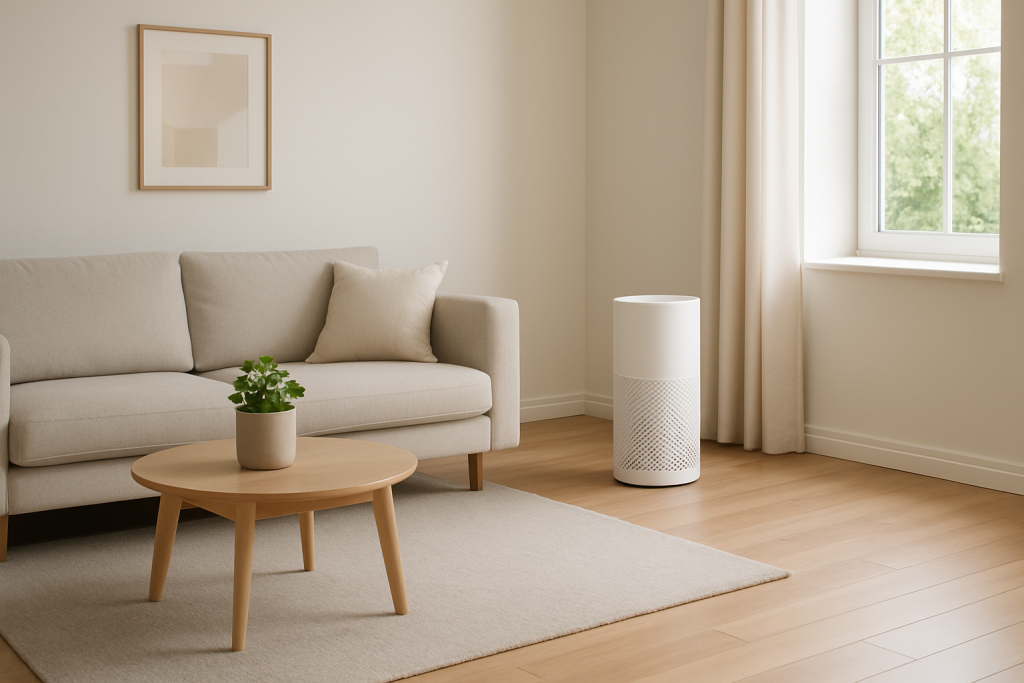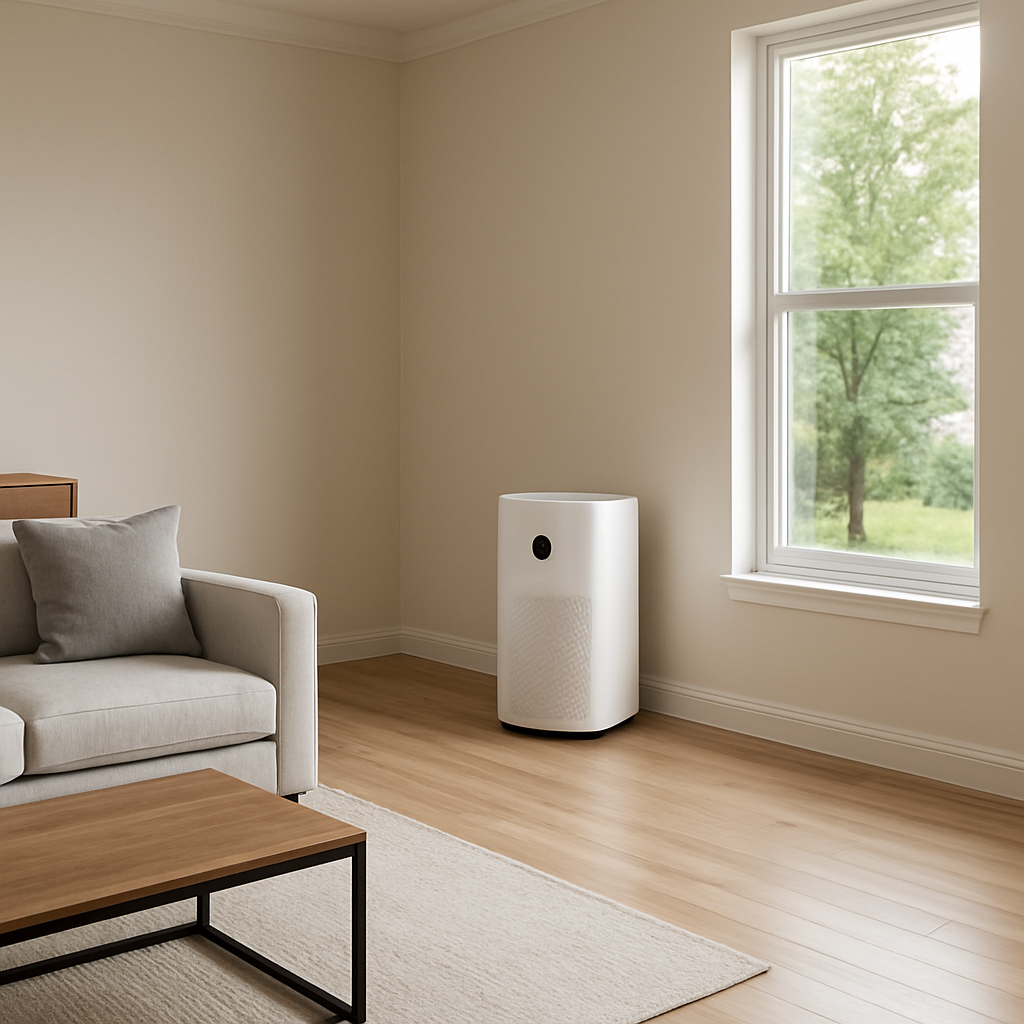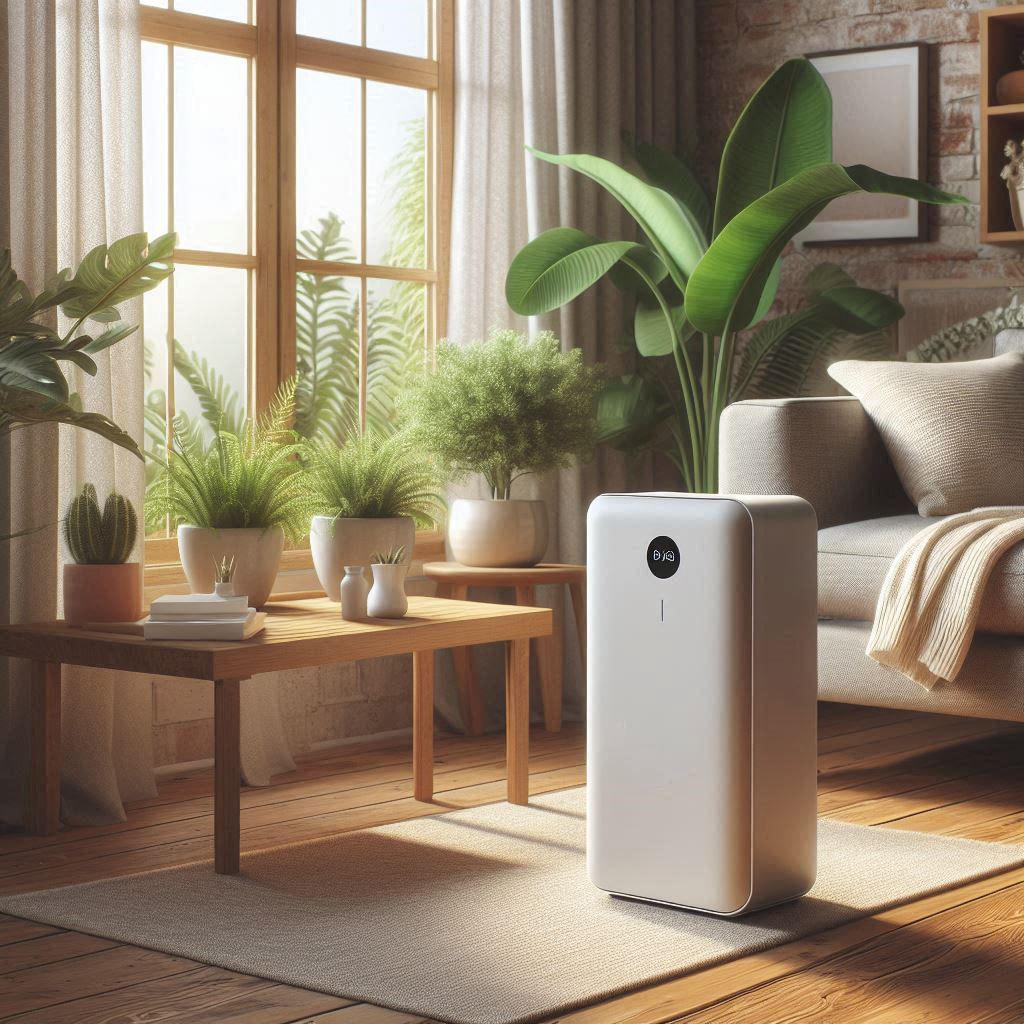I’ve had an obsession with indoor air quality for the last few years—mostly because I experience seasonal allergies, but also because I’ve reviewed and tested dozens of air purifiers at my job as an air quality analyst. Whether it’s smoke from wildfires, invisible VOCs, you name it: most of the time, the air we breathe indoors is far more polluted than outdoor air. This is why knowing how to select the right air purifier is more than just a comfort decision—it’s a health decision.
Today, I’ll put AirDoctor and Levoit (both widely recognized) brands head-to-head. There isn’t much doubt that these are popular household brand names, but each serves different needs, budgets, and use cases. I have personally tested several models from each brand in real-world environments (bedrooms, offices, and larger common areas), and in this guide, I’ll cover every aspect of these brands—from filtering capabilities, noise level, price point, and real world performance—so you can make a selection that offers the best air solution for your specific space.
Brand Overview
What is AirDoctor?
AirDoctor was started with one mission, to provide professional-grade air purification to everyday people. Their products stand out for their medical-grade HEPA filters with strong CADR (Clean Air Delivery Rate) numbers and multi-stage filtration systems for the smallest airborne contaminants.
Founded: 2016
Notable Technology: UltraHEPA (captures particles down to 0.003 microns), dual-action gas trap filters
Certifications: CARB, Energy Star (on select models), AHAM
AirDoctor try to market to health-aware users looking for a set-it-and-forget-it, power-horse for allergy relief, smoke and VOCs.
What is Levoit?
Levoit is a brand owned by VeSync Co. and is one of Amazon’s top-selling air purifier brands. They provide cheap, although aesthetically well-designed, air purifiers that are cheap and perform adequately, compatible with a mobile app, and generally quiet—especially for small to medium-sized rooms.
Company founded: 2017
Notable Technology: True HEPA filters, ARC formula for VOCs (in select models), and the ability to connect to the VeSync app
Certifications: Energy Star, CARB, and ETL
Levoit attempts to strike a balance between affordability and utilization of smart features. They have been a staple of the air purifier market in budget portable models such as the Core 300, and have released more premium smart purifiers like the 400S and 600S.
Performance Comparison
Filtration Technology
AirDoctor:
Uses UltraHEPA filters that have the capability to capture particles as small as 0.003 microns and much higher than the 0.3-micron HEPA standard.
Most models have a gas trap VOC filter that combines activated carbon and proprietary technology to address formaldehyde and toxic gases.
3-4 stage filtration: Pre-filter → Carbon → UltraHEPA → Ionization (no ozone)
Levoit:
Uses True HEPA filters (H13 grade) that capture 99.97% of particles down to 0.3 micron.
Higher-end models like the Core 600S include a custom ARC formula carbon filter for VOCs.
3-stage filtration: Pre-filter → HEPA → Activated Carbon.
🔍 Verdict: AirDoctor takes the overall filtration performance crown, especially for ultrafine particles and VOC heavy areas. Levoit will do well for general household dust, allergens, and light smoke, but is relative to AirDoctor as microscopic coverage is simply not there.
CADR and Room Coverage
| Brand | Model | CADR (Smoke/Dust/Pollen) | Room Coverage (sq. ft.) |
|---|---|---|---|
| AirDoctor 1000 | 152 / 165 / 171 | Up to 285 | |
| AirDoctor 3000 | 326 / 343 / 373 | Up to 505 | |
| AirDoctor 5000 | 560+ | Up to 868 | |
| Levoit Core 300 | 140 / 141 / 145 | Up to 219 | |
| Levoit Core 400S | 247 / 259 / 244 | Up to 403 | |
| Levoit Core 600S | 373 / 388 / 400 | Up to 635 |
AirDoctor consistently ranks higher than its rivals in CADR scores relative to their price tiers, particularly in large and extra-large rooms. Levoit’s top-tier Core 600S is impressive for its size, but still can’t match the AD5000.
Verdict: AirDoctor will win for larger rooms and more smoke/allergen scenarios. Levoit is geared more towards small-to-medium rooms.
Smart Features and Usability
AirDoctor:
Manual controls with air quality sensors on each model.
No mobile app, but the auto mode adjusts the fan speed according to the particle load.
Includes a filter change indicator.
Somewhat uncommon, even some users will miss an app.
Levoit:
VeSync App (on 400S and 600S) offers full control, scheduling and real time AQI tracking.
Voice control via Alexa and Google Assistant.
Touch controls with a modern UI and well thought-out user feedback.
Verdict: Levoit wins in the smart features category. If app control and using voice commands is important to you, then Levoit has a definite advantage.
Noise Levels
| Model | Noise Range (dB) |
|---|---|
| AirDoctor 1000 | 30–50 dB |
| AirDoctor 3000 | 39–59 dB |
| Levoit Core 300 | 24–50 dB |
| Levoit Core 400S | 28–52 dB |
AirDoctor models certainly have power, but they can be noisy on the high setting. Levoit is much quieter on lower speeds—great for a bedroom setting.
In conclusion, Levoit is quieter overall, but AirDoctor does well, considering the higher airflow.
Energy Efficiency
Both brands have Energy Star-rated models, but Levoit’s lower wattage across all models typically means cheaper power bills (especially if running 24/7).
The Verdict: Levoit is more energy-efficient for small-to-mid-sized homes. AirDoctor is simply going to use more energy due to the higher airflow and more robust filtration.
Product Lineups Compared
Comparison Table: AirDoctor vs Levoit Models
| Feature | AirDoctor 1000 | AirDoctor 3000 | AirDoctor 5000 | Levoit Core 300 | Levoit Core 400S | Levoit Core 600S |
|---|---|---|---|---|---|---|
| Filtration | UltraHEPA + Carbon | UltraHEPA + Carbon | UltraHEPA + Carbon | True HEPA + Carbon | True HEPA + ARC | True HEPA + ARC |
| Room Size | 285 sq. ft. | 505 sq. ft. | 868 sq. ft. | 219 sq. ft. | 403 sq. ft. | 635 sq. ft. |
| CADR | ~150 | ~330 | ~560 | ~140 | ~250 | ~390 |
| Noise | 30–50 dB | 39–59 dB | 39–60+ dB | 24–50 dB | 28–52 dB | 26–55 dB |
| Smart App | No | No | No | No | Yes | Yes |
| Price (approx.) | $399 | $629 | $999 | $99 | $219 | $299 |
Design and Build Quality
AirDoctor’s purifiers have a more boxy design, but they are made with thoughtfully constructed medical grade plastic, quality seals, and oversized filters. They feel like real equipment.
Levoit wins the aesthetic appeal category: with sleek rounded designs, their purifiers blend into modern spaces, and Core series units are lightweight and compact.
Summary: AirDoctor is designed for performance and Levoit is designed for form and convenience.
Filter Replacement Cost & Maintenance
AirDoctor:
Filters: 6 – 12 months.
Replacement Sets: $60 – $120 depending on model.
Filters are easy to access and replace.
Over time you will spend more, but the filters have a greater lifespan.
Levoit:
Filters: 6 – 8 months.
Replacement Costs: $20 – $50 per set.
Easily available on Amazon.
Lower cost per filter but shorter lifespan.
Verdict Levoit is cheaper to maintain. AirDoctor has a bigger upfront cost and will cost more over time.

Price vs Value Analysis
Levoit provides tremendous value, particularly in the $100-300 range. Their Core 400S is a great example of good smart features and strong performance, and it only costs about half as much as a mid-range AirDoctor.
AirDoctor costs more, but you are paying for filtration, more coverage, and ultrafine particle control. If air quality is a health major concern, the value makes it worth the cost.
My Personal Experience
When evaluating both brands, I used a laser particle counter to measure PM2.5 and VOCs before and after 1-hour sessions in polluted environments. The AirDoctor 3000 consistently brought PM2.5 from 110 to 1–3 µg/m³, while the Levoit 400S brought it done to 8–12 µg/m³ in the same room.
I also tested usability during the night. The Levoit Core 300 became my new bedroom purifier, as it is quiet, dim, and nearly out of sight. The AirDoctor 5000, though, is in another class for my living room, which is where I need real purification.
Pros & Cons of Each Brand
AirDoctor
✅ Top-tier filtration
✅ Medical-grade UltraHEPA
✅ Great for allergies, smoke
❌ Higher price point
❌ No app or voice control
Levoit
✅ Affordable, quiet
✅ App supported, smart features
✅ Sleek, compact design for tight spaces
❌ Less effective on ultrafine particles
❌ Smaller CADR

Which one to buy?
For allergies & asthma: AirDoctor is worth it– the UltraHEPA really makes a difference.
For smoke (wildfires, cooking): AirDoctor 3000 or 5000.
For small bedrooms or small offices: Levoit Core 300 or 400S.
For budget-conscious, and want smart features: Levoit 400S takes the cake.
For large open spaces: AirDoctor 5000 is your best option.
Conclusion
If you are serious about cleaning your air and don’t care about spending the money, AirDoctor is great for you because they perform better than Levoit in EVERY technical measurement. But if you are looking for something that is just a bit smarter and a bit quieter, or you want to save a buck on a slightly less effective purifier for casual use, Levoit is a great option, and a stylish option.
In my own home I use AirDoctor in large open areas, and Levoit in bedrooms. It might not be one or the other, and, you might benefit from using both!

